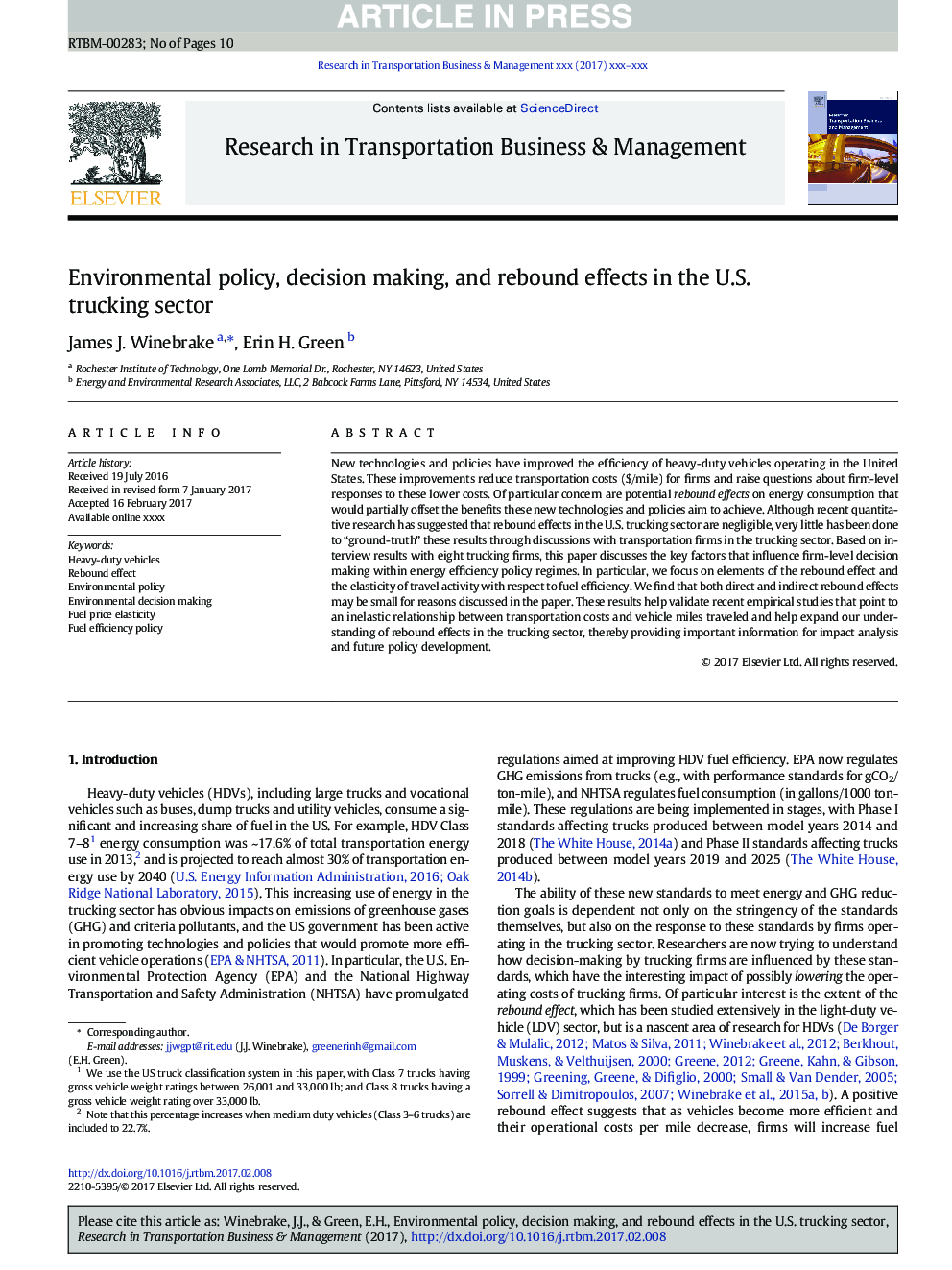| Article ID | Journal | Published Year | Pages | File Type |
|---|---|---|---|---|
| 5106656 | Research in Transportation Business & Management | 2017 | 10 Pages |
Abstract
New technologies and policies have improved the efficiency of heavy-duty vehicles operating in the United States. These improvements reduce transportation costs ($/mile) for firms and raise questions about firm-level responses to these lower costs. Of particular concern are potential rebound effects on energy consumption that would partially offset the benefits these new technologies and policies aim to achieve. Although recent quantitative research has suggested that rebound effects in the U.S. trucking sector are negligible, very little has been done to “ground-truth” these results through discussions with transportation firms in the trucking sector. Based on interview results with eight trucking firms, this paper discusses the key factors that influence firm-level decision making within energy efficiency policy regimes. In particular, we focus on elements of the rebound effect and the elasticity of travel activity with respect to fuel efficiency. We find that both direct and indirect rebound effects may be small for reasons discussed in the paper. These results help validate recent empirical studies that point to an inelastic relationship between transportation costs and vehicle miles traveled and help expand our understanding of rebound effects in the trucking sector, thereby providing important information for impact analysis and future policy development.
Keywords
Related Topics
Social Sciences and Humanities
Business, Management and Accounting
Business and International Management
Authors
James J. Winebrake, Erin H. Green,
